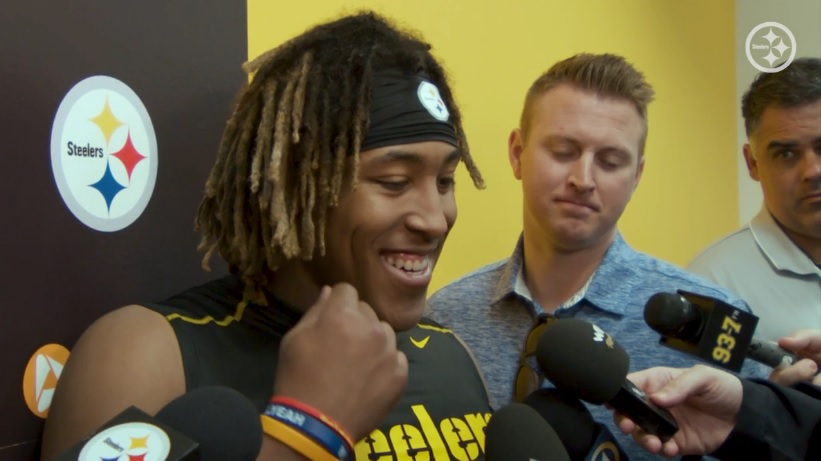“Winners always want the ball when the game’s on the line.”
That’s my favorite line from Jimmy McGinty in The Replacements, still one of the best football movies ever made even despite its over-the-top corniness.
Winners want the ball.
Benny Snell wants the ball.
That’s how he framed his football mentality in his first interview since being drafted by the Pittsburgh Steelers.
“That’s just Benny Snell football,” he told reporters following his first practice. “That’s downhill, running the ball downhill, running the clock out. My team depending on me in that team of need. I’m going to make it happen.”
There was no secret that with the game on the line, Snell was carrying the rock. When Kentucky beat Florida last year for the first time in 31 years, he was asked to close out the game. With a little over three minutes to go and the Wildcats leading by just five, Snell answered the bell on all six snaps, converting a crucial 3rd and 1 and eating up nearly all the clock. Florida didn’t get the ball back until there were 29 seconds left and Kentucky held on to win.
His final game, the Citrus Bowl versus Penn State, played out the same way. Snell literally ran the four minute offense to close out the game. Eight offensive snaps. Eight carries. Penn State wouldn’t see the ball again until there was one second left and Kentucky would go on to have their first 10 win season since 1977.
“It could be 2nd and 3, or 3rd and 3, it could be 4th and 2, it could be 3rd and goal or 4th and goal, or it could be four minute offense. You just have to run the clock out to win the game. It’s just feeding him, feeding him, let him run it up. He’s going to get up, he’s having fun, he might dance a little bit, but he’s going to run back and do it again. Everybody is the stadium, both teams, know what’s going to happen.”
He served as the centerpiece of the offense, and really, the entire program. He entered Kentucky a light, three-star recruit, Ohio native snubbed his Ohio State. The Wildcats trudged through six consecutive losing seasons when they arrived, all without bowl appearances. By the time Snell left, they had gone to three bowl games, winning that final one against Penn State, with a combined 24-15 record despite facing difficult SEC competition.
“It works because you put the ball in the playmakers hands. And he makes plays. That’s really it.”
Of course, Snell won’t be the “guy” in Pittsburgh that he was in college. Not right away. But it’s possible he’ll carve out a role throughout the season. And in the likely case someone ahead of him gets dinged up, Snell will be the first man off the bench.
Wanting the ball.








